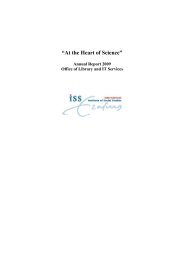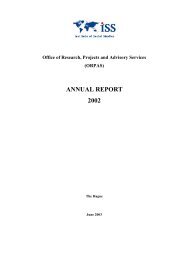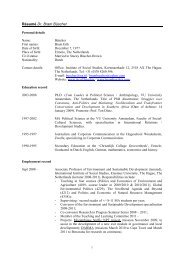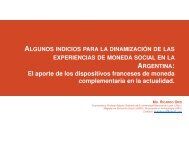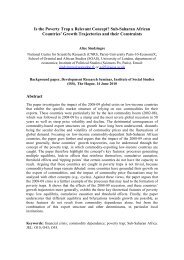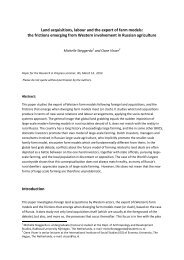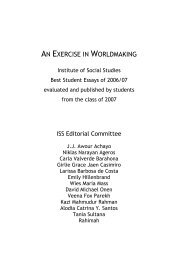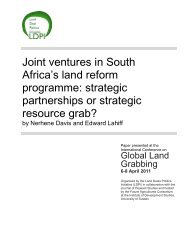AN EXERCISE IN WORLDMAKING 2009 - ISS
AN EXERCISE IN WORLDMAKING 2009 - ISS
AN EXERCISE IN WORLDMAKING 2009 - ISS
You also want an ePaper? Increase the reach of your titles
YUMPU automatically turns print PDFs into web optimized ePapers that Google loves.
86 MEKALIA PAULOS AKLILU<br />
the restructuring that took effect and its consequences. Ultimately, I will<br />
put forth my own personal reflections by way of concluding the debate.<br />
Whilst acknowledging that indeed neo-liberalism is in essence conceptualized<br />
as a dialectical interaction between ideology and underlying material<br />
interests, an unresolved contention remains amid various authors<br />
and academia as to which of these two elements transcends the other:<br />
ideational or material? This paper constraints itself by analyzing issues<br />
through the prism of a more critical materialist perspective; the alternative<br />
view will also be presented so as to achieve a more nuanced understanding.<br />
This scope may appear limited given the complex nature of the<br />
issue at hand. However, exhaustively presenting an analysis of both perspectives<br />
would, I believe, be neither possible nor prudent, and moreover,<br />
would not be in the interest of clarity given known constraints.<br />
Furthermore, notwithstanding the role of homegrown neo-liberalism, I<br />
feel it important to accentuate the ramifications of the IMF-imposed<br />
course of action during the time in question.<br />
NEO-LIBERALISM DEF<strong>IN</strong>ED: A MATERIALIST PERSPECTIVE<br />
Anchored in the ideals of eighteenth and nineteenth century liberalism,<br />
neo-liberalism came to govern the international sphere in the 1980s and<br />
beyond. Its ascent was instigated by a crisis in capitalism, as the “embedded<br />
liberalism” that reigned during the post-World War 2 period appeared<br />
untenable and stagflation became a striking characteristic of much<br />
of the 1970s as oil prices reached astronomical heights. It therefore became<br />
evident that the Keynesian economic thought and policies marked<br />
by state-interventionism, which had dexterously constructed an agreeable<br />
compromise between capital and labor, had to be revamped (Gamble<br />
2006, Harvey 2005, Robison 2006). The monetarist critique of Keynesianism<br />
that had been stealthily amplifying began to take hold as intense<br />
debates followed in the corridors of political power as well as academic<br />
circles.<br />
In the event that a particular notion seeks preeminence, it requires a<br />
conceptual apparatus that embodies ideals held in high esteem by those it<br />
desires to sway. Hence, neo-liberalism opted for human dignity and individual<br />
freedom, both potently magnetic in their allure (Harvey 2005: 5).<br />
The concept of freedom was denigrated to a sheer promotion of free<br />
enterprise and as Karl Polanyi astutely observed, “planning and control<br />
[were] being attacked as a denial of freedom. Free enterprise and private



